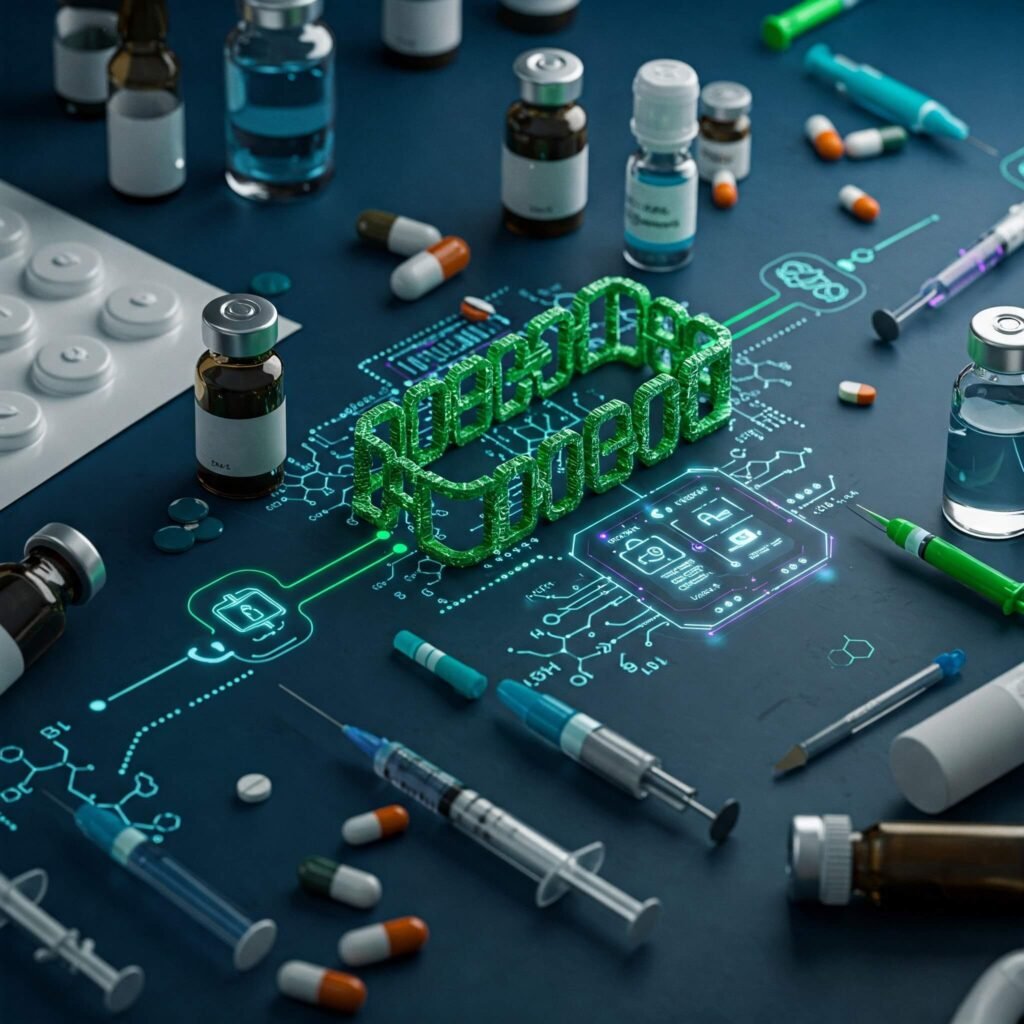Blockchain in healthcare is revolutionizing how we manage patient data, secure medical records, and streamline operations. By leveraging decentralized, secure, and transparent systems, blockchain technology addresses critical challenges like data breaches, inefficiencies, and lack of interoperability. This article dives into real-world use cases, innovative applications, and actionable insights to understand how blockchain is reshaping healthcare.
Why Blockchain in Healthcare Matters
The healthcare industry handles sensitive data daily—patient records, clinical trials, and supply chain logistics. Traditional systems often struggle with security vulnerabilities and inefficiencies. Blockchain in healthcare offers a decentralized solution, ensuring data integrity, transparency, and accessibility.
- Data Security: Blockchain’s encryption prevents unauthorized access, reducing data breach risks.
- Interoperability: Decentralized systems enable seamless data sharing across providers.
- Transparency: Immutable records ensure trust in medical processes.

Real-World Use Cases of Blockchain in Healthcare
Blockchain technology is already making waves in healthcare. Below are some compelling real-world applications:
1. Secure Patient Records Management
Blockchain in healthcare ensures patient records are secure, tamper-proof, and accessible only to authorized parties. For example, MediLedger, a blockchain-based platform, enables patients to control their data while allowing providers to access verified records.
- How It Works: Patient data is stored on a blockchain, with private keys granting access.
- Benefits: Reduces data breaches and enhances patient trust.
- Example: Estonia’s e-Health system uses blockchain to secure over 1 million patient records (e-Estonia).
2. Streamlined Medical Supply Chain
Blockchain in healthcare improves transparency in the medical supply chain, ensuring authentic drugs and equipment. IBM’s Transparent Supply uses blockchain to track pharmaceuticals from manufacturer to patient, combating counterfeit drugs.
- How It Works: Each transaction is recorded on an immutable ledger.
- Benefits: Prevents fraud and ensures timely delivery.
- Example: The World Health Organization estimates 10% of drugs globally are counterfeit; blockchain can reduce this (WHO).
3. Clinical Trials and Research
Blockchain in healthcares enhances the integrity of clinical trials by ensuring data transparency. BurstIQ uses blockchain to manage and share clinical trial data securely, reducing fraud and improving research outcomes.
- How It Works: Trial data is timestamped and stored on a blockchain.
- Benefits: Ensures data authenticity and accelerates research.
- Example: BurstIQ’s platform has supported trials for major pharmaceutical companies (BurstIQ).

Innovations Driving Blockchain in Healthcare
Beyond current use cases, blockchains in healthcare is sparking innovations that promise to transform the industry.
1. Decentralized Health Identities
Blockchain enables patients to own and manage their health identities. Platforms like Patientory allow individuals to store and share their medical history securely.
- Impact: Empowers patients and reduces reliance on centralized systems.
- Example: Patientory’s app has been adopted by hospitals in the U.S. (Patientory).
2. Smart Contracts for Billing
Blockchain-based smart contracts automate billing and insurance claims, reducing administrative costs. PokitDok uses blockchain to streamline claims processing, ensuring transparency and efficiency.
- Impact: Cuts costs and speeds up reimbursements.
- Example: PokitDok has partnered with major insurers to implement blockchain solutions (PokitDok).
3. Telemedicine and Remote Monitoring
Blockchain in healthcares supports secure telemedicine platforms by ensuring data privacy. Solve.Care uses blockchain to facilitate secure virtual consultations and remote monitoring.
- Impact: Enhances access to care, especially in underserved areas.
- Example: Solve.Care’s platform serves thousands of patients globally (Solve.Care).

Benefits and Challenges of Blockchain in Healthcare
Benefits
- Enhanced Security: Protects sensitive data from breaches.
- Cost Efficiency: Reduces administrative and fraud-related costs.
- Patient Empowerment: Gives individuals control over their data.
Challenges
- Scalability: Blockchain systems can be slow for large datasets.
- Regulation: Compliance with laws like HIPAA is complex.
- Adoption: Requires industry-wide collaboration.
Actionable Takeaways for Healthcare Stakeholders
To leverage blockchain in healthcares, consider these steps:
- Invest in Pilot Programs: Test blockchain for patient records or supply chain tracking.
- Partner with Experts: Collaborate with blockchain providers like MediLedger or IBM.
- Educate Staff: Train teams on blockchain benefits and implementation.
- Stay Compliant: Ensure solutions meet regulatory standards like GDPR or HIPAA.
The Future of Blockchain in Healthcare
Blockchain in healthcare is poised for exponential growth. By 2030, the global healthcare blockchain market is projected to reach $8.7 billion, driven by demand for secure data solutions (Statista). As technology evolves, we can expect more innovations, from AI-integrated blockchains to global health data networks.
Outbound Link: Blockchain in Healthcare: Benefits, Use Cases and Challenges – TMA Solutions



